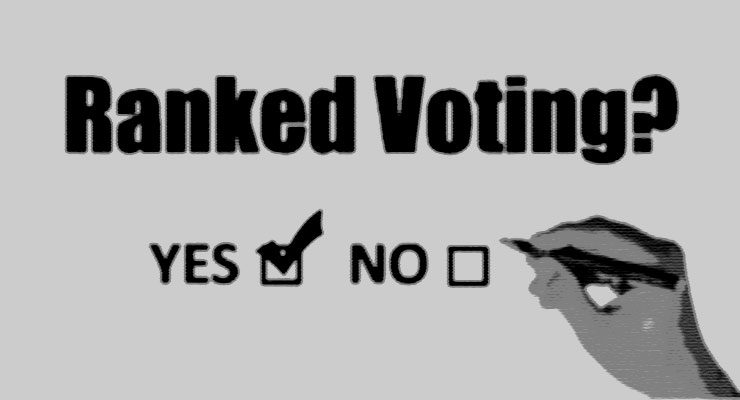 The latest news on this front comes from an article by Scott McCaffery at the local Sun Gazette Newspaper. Take a look:
The latest news on this front comes from an article by Scott McCaffery at the local Sun Gazette Newspaper. Take a look:
Arlington’s efforts to create “instant-runoff” County Board elections may hinge on how an upcoming meeting between county and state officials and technology vendors goes.
Arlington officials are aiming to set up the confab in early February, to determine if the technology exists to successfully run such elections, now that Arlington has the power to switch to the instant-runoff (also called “ranked-choice”) format from the traditional winner-take-all process that has been in place since the County Board was created in the early 1930s.
Maine only recently became the first state to ever use the ranked choice voting system, starting only in 2018. Since then, a flurry of states and localities have been considering a switch to the unique system. A change to ranked voting and away from the universally used plurality voting system is beginning to be seen by many in both parties as a potential gamechanger.
Other states and localities that have recently seen legislation proposed to make the switch to ranked choice voting include Connecticut, Vermont, New Hampshire, Massachusetts, New Jersey, New York City, Baltimore, and at least two cities in Utah. Click those links for the latest related Democracy Chronicles coverage!
So what is ranked choice voting? According to Democracy Chronicles’ friends at the nonpartisan nonprofit FairVote, an organization with its headquarters in Takoma Park, Maryland:
Ranked choice voting (RCV) makes democracy more fair and functional. It works in a variety of contexts. It is a simple change that can have a big impact. With ranked choice voting, voters can rank as many candidates as they want in order of choice. Candidates do best when they attract a strong core of first-choice support while also reaching out for second and even third choices.
When used as an “instant runoff” to elect a single candidate like a mayor or a governor, RCV helps elect a candidate that better reflects the support of a majority of voters. When used as a form of fair representation voting to elect more than one candidate like a city council, state legislature or even Congress, RCV helps to more fairly represent the full spectrum of voters.
Leave a Reply